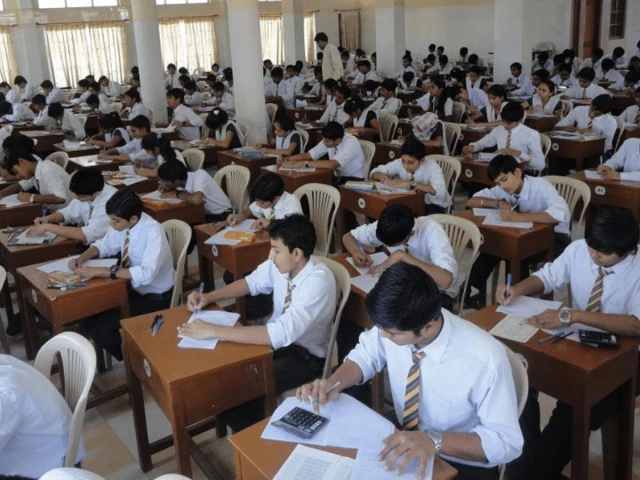The Coordination Commission of the Board, under the new classification policy, has made an ascending change in the percentage of approval for intermediate and matrix levels from 33% to 40% throughout the country.
The Commission, an official forum that represents all educational boards throughout Pakistan, issued a notification on Tuesday announcing the implementation of a new qualification policy, which will enter into force in phases of 2026 for registration and intermediate annual exams.
However, the updated policy excludes the average grades (GPA) and the average cumulative qualifications (CGPA) systems, which were part of the proposed framework.
According to the notification, the decision was taken during a meeting of the heads of all educational boards, held in Karachi last month. The IBCC has now formally notified the implementation program.
Talking with Express newsExecutive Director of IBCC, Dr. Ghulam Ali Mallah, said the change was made after several universities expressed reservations on the adoption of GPA -based admissions at this stage.
“During the forum meeting in Karachi, it was observed that many universities are not yet ready to offer admissions based on the GPA system. Universities reported that the new qualification policy should be initially implemented without GPA, and educational boards agreed,” said Dr. Mallah. “Therefore, the new qualification policy will be implemented since 2026 without GPA,” he added.
The IBCC notification also confirmed that the inclusion of GPA in the national classification system has been deferred until new notice.
Qualification in a new system
The new qualification model, inspired by the Cambridge evaluation structure, will introduce multiple letters of letters for high performance students.
Previously, students who noted 80-100% received an A1 rating. Under the new system, that range will be divided into four new categories: 96–100%: A ++ (extraordinary), 91–95%: A+ (exceptional), 86–90%: A (outstanding), 81–85%: B ++ (excellent). Other grades will include B+ (very good), B (good), C+ (good), C (higher than average), D (emerging) and U (not accumulated).
The IBCC declared that the policy will be implemented in the ninth and eleventh degrees in 2026, followed by tenth and twelfth grade in 2027, ensuring a gradual transition in all educational boards in the country.
FBISE also presents a new qualification formula
The Federal Board of Intermediate and Secondary Education has also introduced a new qualification formula aimed at improving academic standards and aligning the educational system of Pakistan with international practices.
According to a notification issued by the development of the director Mirza Ali, the new qualification system will be implemented for the 2026 enrollment exams, while the intermediate students (FA and FSC) will follow the new structure from 2027.
The measure follows the guidelines and decisions of the Board Coordination Commission, which previously approved a similar national framework for all educational boards.
Read more: The Edu department proposes to increase the threshold of passing brands
According to the new system, students who ensure 96–100% of brands will receive an A ++ rating, those with 91–95% will obtain to+, and 86–90% will be qualified Similarly, 81–85% will correspond to B ++, 76–80% to B+, and 71–75% to BB students who write down 61–70% will receive C+, 51–60% will obtain C+and 71–75 to B. Given a D (emerging) rating.
Students who obtain less than 40% of brands will be designated as ‘without accumulating’. The notification also establishes that ‘non -accumulated’ students may reappear in exams provided they meet other academic requirements.
Education experts said that the new qualification system would reflect the performance of students more precisely and offer more just evaluation opportunities. “The new system is designed to present a more transparent evaluation of students’ abilities and align with global standards,” said an educator.
The FBISE declared that the reform is part of broader efforts to modernize the Pakistan examination and evaluation system, which makes it more credible and internationally comparable.




